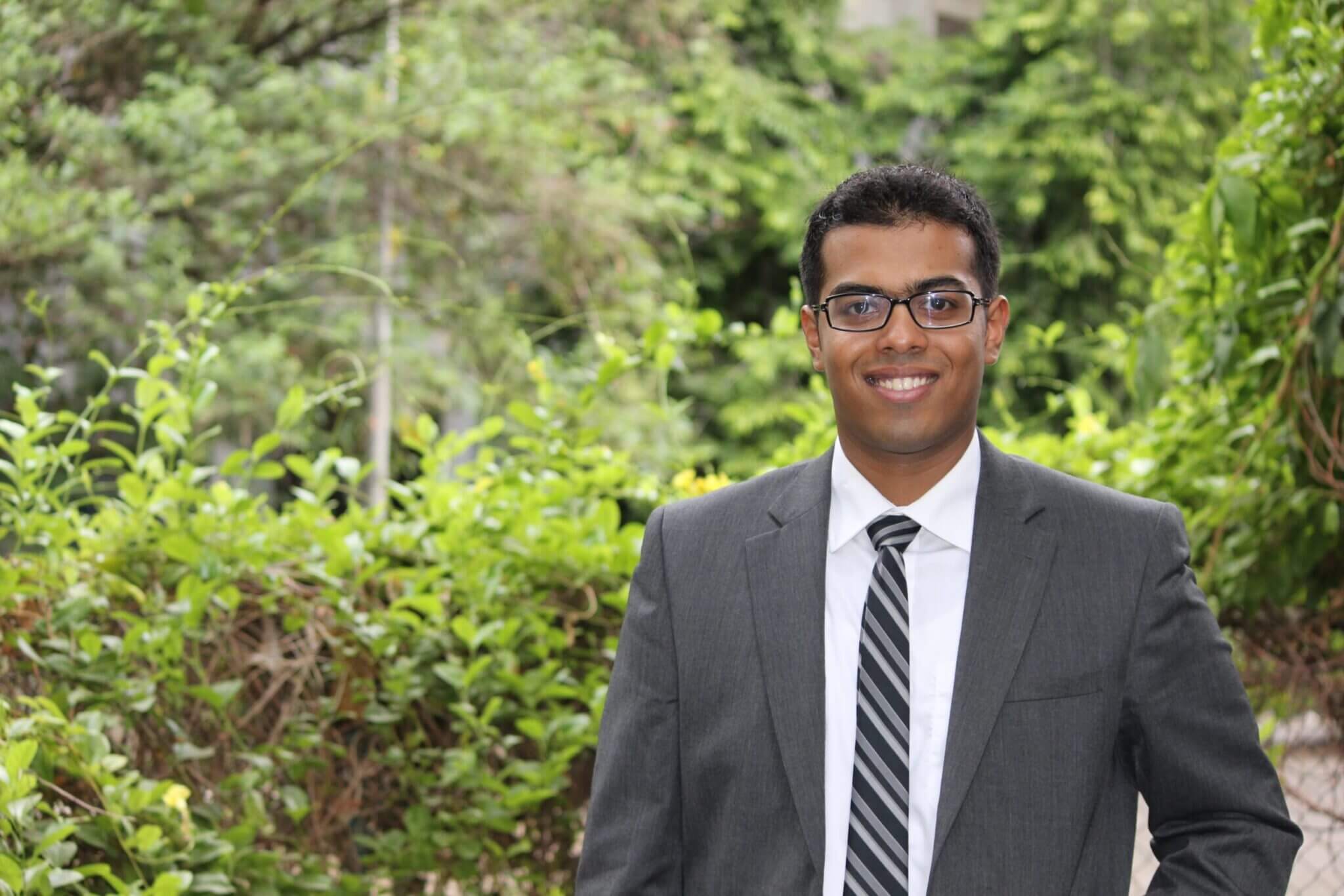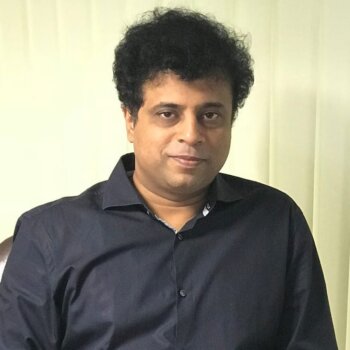Born and brought up in Pune, India, Ankur Mathur holds a bachelors degree in Chemical Engineering from the University of Pune. Not shy of academic excellence, Mathur is a recipient of the Chevening Scholarship by the UK Government and also currently pursuing a Masters degree at the prestigious, Imperial College Business School, London.
Hard-wired with curiosity and fueled by a passion for entrepreneurship and leadership, Mathur has been involved in starting and leading youth-centric non-profits and college clubs in India. His initial forays into the realms of entrepreneurship have come through efforts to form a collective pan-university environmental society while pursuing his undergraduate studies in 2010. Subsequently, later in 2010, his efforts were recognised as he was awarded the International Climate Championship by British Council in recognition of his work within local communities to raise awareness and limit the impact of climate change in India.
Consequently, later in 2013, driven by a desire to improve the quality of Indian pedagogy, Mathur co-founded a non-profit organization, Socrates Foundation for Enhanced Learning. Through Socrates Foundation, he envisions to introduce critical thinking, creative problem solving skills and adaptive learning competencies necessary for 21st century, in the Indian school curriculum. Recently, in April 2014, Mathur was appointed as the Global Youth Ambassador by the office of Ms. Sarah & Mr. Gordon Brown, UN Special Envoy for Global Education and A World at School, UK.
In your own words what is Socrates Foundation?
Socrates Foundation for Enhanced Learning is a registered non-profit organization whose aim is to prepare the students of today for the skill sets which they will require as young citizens of the 21st century for their personal, professional, social and personal life. It also carries out Professional Development Programs for teachers and school administrators to incorporate the best practices in pedagogy, takes cognizance of the variety of media & sources of information which is available to children today and which lays emphasis on inter disciplinary knowledge.
We endeavor to inculcate the habit of creative and critical thinking in primary & secondary students of India. Catering to the privileged and underprivileged schools alike, we strive to integrate 21st Century skills like Digital, Environment & Media Literacy, Global Citizenship, Service Learning and Social & Emotional Learning into their core curriculum. Aiming to facilitate equitable qualitative & quantitative best practices in pedagogy, we plan to replicate our heuristic modules nationally.
Catering to educators and students alike, we focus on reinforcing the edifice of the 4C’s – Critical Thinking, Creativity, Collaboration and Communication. Socrates Foundation has 7 core programs on Environment, Media and Digital Literacy, Social & Emotional Learning, Service Learning, Global Citizenship & Critical Thinking. Each of these 20-hour long modules follows a unique pedagogy to engage students through heuristic projects and our ‘Knowledge to Action’ approach helps inculcate the 4C’s in their routine decision-making. Additionally, five 12-hours intensive workshops planned for educators, aid in fostering Professional Learning Communities and leverage the power of holistic collaborative teaching. Facilitated by NASA educators, Fulbright Fellows and industry experts, our program is distributed over 6-8 months for a group of 40-50 students. The students’ selected include those from varied backgrounds and castes, offering each the opportunity for equitable quality education.
How did you come up with the idea of Socrates Foundation?
I believe that while the Indian educational reforms have successfully provided better access to education, they have exacerbated its quality at the cost of reaching out to large poverty ridden demography. The current system still remains captive to the parochialisms of rote learning, with emphasis on memorizing rather than understanding. Resultantly, “75% of technical graduates and 85% of general graduates are unemployable by India’s high-growth global industries” (Wall Street Journal, India, 2011).
Two events between 2008-2012, motivated me to devote my time and energy in doing my bit to revitalize the archaic methods of teaching, which was prevalent in most of the schools in India.
During 2008-2012, while studying Chemical Engineering in Pune, India, there were two very noticeable and disturbing observations that I made – one was the apparent apathy of my contemporary students to the issues that plagued our society. The second, even more frightening, was that there seemed to be a wide chasm between what knowledge we were acquiring in college and what skills the employers sought in potential hires. Believing that the knowledge gained at college would guarantee one a good career, many students were terribly disappointed when they could not land jobs despite scoring good marks. This led me to dig deeper into the issue, and I came across assertions by the corporate captains lamenting that almost 70% of the graduates were unemployable by industry standards! What struck me was the deep concern that the education administrators and parents had for the tectonic shift that technology was forcing upon the skill requirements in the 21st century and beyond, and how should the education system shift course from a knowledge focussed approach to a skill centric approach. Rapid growth of computerisation was clearly taking away the jobs requiring lower order skills and a premium was being paid not for simple acquisition of knowledge and information, but for using multi disciplinary knowledge to solve problems, with precedence on skills of critical thinking, communication and collaboration.
However, I drew most of my motivation and inspiration from my mother, a career educationist, a Fulbright Fellow and a NASA Educator. My insights into the realms of progressive educational techniques came from my discussions with my mother. We had long discussions about the ground realities of the Indian education system and how we could take steps to help implement the latest in pedagogy so that the demographic dividend that India talks about, could be a reality. This marked the commencement of the conceptualization of the Socrates idea.
Could you walk us through the process of starting up Socrates Foundation?
With my mother’s rich and varied experience in education, we proceeded to design a workshop module on ‘Developing Critical Thinking Skills in Students of Grade 8 through Space Science Activities’, which drew the interest of teachers & students alike. This proposal was subsequently submitted to the Bureau of Educational & Cultural Affairs, Department of State, USA and was awarded a funding and accreditation to implement it in 7 schools from July 2012 to September 2012. 40 students & 15 teachers attended this 20 hr workshop spread over 10 days and start ‘Space Science Club’ in their own schools. Overwhelmed by the response we received, we felt the urge to do something in a more organized and sustained manner.
Subsequently, we started to crystallise our plans to start Socrates Foundation, a formalized professional organization devoted to introducing 21st century skills in Indian schools. Quite early, we realized that our organization cannot run on emotions alone, and therefore we got down to brass-tacks. There were two aspects why we decided to float ‘Socrates Foundation for Enhanced Learning’ as a ‘not–for–profit’ organization. The first was purely a strategic reason – with the limited resources that we were starting with, we could remain focused on the programs that we planned to conduct rather than share these resources & energy with running the business as a company. However, the second and more important reason was our view that given the large proportion of schools catering to the students from the underserved section of the society, the ‘for profit’ business model, if adopted by us, would preclude many of them from our programs because of unaffordability.
Firm in our belief that the existing education process needed to be augmented and strengthened, we decided to implement our core activities in close coordination with the schools rather than conducting the workshops as standalone activities for students and teachers outside the existing schooling system.
We started to work on several key areas – developing content, structuring the organization, setting up a panel of domain experts, discussing with school administrators about the need to initiate radical changes, identifying and talking to benefactors who would be interested in pledging their resources for our cause.
Buoyed by the success of the first workshop, we conducted a series of similar workshops for schools in Pune and Faizabad, a small district in Uttar Pradesh, simultaneously submitting documents to the concerned authorities for granting us the ‘NGO’ status. ‘Socrates Foundation for Enhanced Learning’, an NGO was born in June 2013.
Did you encounter any particular difficulties setting up the Foundation?
A major obstacle that we faced while setting up the Foundation was the absence of a formal support system that could handhold an organization such as ours during the initial phases and ensure that it is not stillborn. The situation worsens if it is a ‘not – for – profit’ startup, and the promoters do not have adequate financial backing. The difficulties are exacerbated for NGO’s like ours who have intent to work independently in the education sector. For organizations, which start from scratch, identifying sources of funding and sustaining itself during the initial stages becomes a major part of its activity, and can be a major de-motivating factor that can inhibit its growth or even lead to shutting down its operations.
How have you been developing Socrates Foundation since inception (i.e. what’s the developmental direction)?
It’s been about 2 years since we launched our first workshop, and about 1 year since our Foundation was officially born. While still continuing with our flagship workshop on ‘Critical Thinking’ we have widened our focus to reinforcing the skill sets of the students in the areas of Environment, Media and Digital Literacy, Social & Emotional Learning, Service Learning and Global Citizenship. Each of these modules follow a unique pedagogy to engage students through heuristic projects and our ‘Knowledge to Action’ approach will help inculcate the 4C’s in their routine decision-making. Additionally, workshops have been planned for educators, which will aid in fostering Professional Learning Communities and leverage the power of holistic collaborative teaching. Each of these programs have been meticulously designed, vetted and will be facilitated by NASA educators, Fulbright Fellows and industry experts.
What kind of feedback did you get for Socrates Foundation so far?
During the past 2 years, Socrates Foundation has conducted about a dozen workshops on Critical Thinking, Digital Citizenship, Media Literacy and Service Learning, benefitting approximately 1500 students and 100 teachers from 20 schools. Though the feedback from all the stakeholders has been positive, the student participants have had the most encouraging reactions to offer. Unequivocally, their first reaction was that in each of the workshops, they got a new and fresh perspective to their regular subjects like math, science, history, geography, biology. They could ‘unlearn’ the fact that one subject was unconnected to another and had to be studied and understood in isolation. So, in the Media Literacy workshop, they could learn about Germany under Hitler and his use of media, while in the Space Science workshop, they got to learn and use tools for collaborative problem solving and decision making. The educators were quite excited to use contemporary technology and tools that they got to work with in the workshops.
How do you see India in the next 20 years?
India certainly has a demographic advantage. Compared to many of the developed countries, India can certainly hope to reap the advantages of almost 140 million children in the age group of 0 – 5 years who will be ready for a career 20 years from now. Young India, with a vibrant political system, an impatient electorate that is showing its muscle time & again and economy zooming at a fast clip, the climate is conducive for India to take the pole position in times to come. However, I feel that we need to shift gears and take a call on whether we should sustain our economy by being the most economical IT & back office service providers to the world. India’s rank on the Innovation Index and University/industry research collaboration Index has fallen between 2013 & 14 (Global Innovation Index 2014 report). As technology permeates all walks of life, there is going to be a paradigm shift in the way we are teaching in schools & colleges. Innovation, collaboration, communication, critical thinking are the skills that will be increasingly required for a better quality of life.
What can you tell us about the industry? Have you developed any industry insights that you could share?
Education sector is one of the most important basic infrastructures, which get active support from the state. With rapid globalization and unique demographic advantage, India is in the unique position to provide a young, educated and skilled workforce to the world. It is estimated that the labour force in India is expected to increase by 32% over the next 20 years. This presents not only a huge challenge, but also an opportunity not only to the youth who would be ready to plunge into a career few years from now, but also for NGOs, corporates and other organizations that would be willing to work in this sector.
Planning and development of the education system by the state is driven by the agenda of Education for All (EFA) as per the agreed Dakar Framework of Action (2001) over the last 15 years. While the state is the key stakeholder and invests heavily in school systems upto the primary levels, spending almost 90% of the total cost, the percentage comes down sharply to 70% for middle, high & higher secondary schools, with an enrolment percentage about 40%.
The emphasis of the government has been to ensure that no child is left unlettered, and therefore, The Right of Children to Free and Compulsory Education (RTE) Act has become operative with effect from 1st April 2010. The RTE Act provides that all children in the 6-14 age groups have a right to free and compulsory education in a neighborhood school.
The ‘Sarva Shiksha Abhiyaan’ (SSA) is implemented as India’s main program for universalization of elementary education (UEE). Its overall goals include universal access and retention, bridging of gender and social gaps in enrolment levels and enhancement of learning levels of all children. (12th 5 Year Plan, Planning Commission of India).
India has more than 0.25 billion children in the age group of 5 years to14 years. Out of this, the Indian school education system, one of the largest in the world, caters to about 0.2 billion students, representing about 80% of the target population. In the secondary & higher secondary classes, 59.6 million students out of a total population of 71.7 million children in the age bracket of 15 yrs to 17 years are studying.
As a percentage of GDP, in 2005, The Organization of Economic Cooperation and Development (OECD), 2005 spent 5.6% on education, Korea spent 8% Turkey and Greece spent 3.5%, while India spends on an average, less than 3% of its GDP. (Report of Working Group on Private Participation including PPP in School Education, Oct 2011). By 2008 – 09, the spending by India had increased to 3.5 % of GDP and was slightly above 13% of the total public expenditure (GOI document on Expenditure on Education). The annual government spending is 30 billion USD, and estimated annual private spending on education is 43.2 billion USD, making it one of the largest capitalized spaces in India.
How do you plan to stay relevant in this industry?
A number of organizations like Teach for India, Pratham, CRY and Avanti Fellows have sought to provide educational access to low-income groups in India by channelizing the power of the youth providing peer-based learning. Socrates Foundation, however, aims to radically transform the quality of education by re-skilling the educators & students with contemporary competencies comprising of tools to improve the engagement level & skills of students. By integrating methods of adaptive learning, designed on upper levels of Blooms Taxonomy – Synthesis, Analysis and Evaluation – our modus operandi is aligned to better suit the needs of todays ‘Digital Natives’. NASSCOM & McKinsey suggest the actual scope of the problem not being the lack of quantitative, but that of qualitative education. With about 45% of Indian graduates today earning less that $1200 per annum (IDFC Report 2012), SFEL seeks to spearhead a transition from traditional pedagogies to those better suited for the 21st Century.
What is the future of the industry in your opinion?
Education systems world over are devising strategies to prepare knowledge workers for the 21st century, and there is a concerted effort by countries to bring about an overhaul of the teaching & learning processes.
The future of the industry will be guided in major part by the policy directions of the state, however, there is an urgent need not only to invest in infrastructure, but also to bolster the efforts of the government in increasing the literacy rate, reach of the education system to remote areas and to those who still remain untouched by it, and more importantly, to improve the quality of education. Indian government has declared its intention to increase the expenditure on education from the present levels of less than 4% to 6% of GDP. This would mean an additional inflow of about USD 35 billion into the system. During the year 2013-14, 75.9 per cent of the 1,448,712 schools imparting elementary education were managed by the Government. Private aided schools constituted 4.69 per cent of the total number of schools while private-unaided schools constituted 17.4 per cent of the total number of schools imparting elementary education. Public Private Partnership (PPP) is sought to be increased in this sector, and the government has announced various policy initiatives to encourage private enterprises to commit resources.
In 2009, the Government of India launched the National Skill Development Policy (NSDP) with a target for skilling 500 million people by 2020. Some of the future priorities for strengthening the skill development and vocational education system include promoting PPPs, development of an enabling framework that would attract private investment in vocational education and training through Public–Private Partnership (PPP)
Were there anything that disappointed you initially?
Entrepreneurial ventures are gaining a lot of traction in India and doing well, which says quite a lot about the drive and the motivation of those who undertake such a path. However, an ecosystem, which nurtures such initiatives, is the need of the hour. The yearly survey of the World Bank about the ease of doing business still places India in the bottom quarter of the list. Startups need all their resources to kick start their business, and would not like them to be squandered away in necessary but low priority paperwork to establish the organization.
It was also disappointing not being able to put together a team of volunteers & support staff that was willing to work on a shoestring budget in the initial phase of growth.
Education sector is increasingly getting commercialized, and its direction is dictated primarily by profit motives. The school administration and the teaching process in most of the cases, strictly follows the regimen of ‘teacher & the taught’, where most of the teachers still believe in the adage ‘I am the sage on the stage’. It was quite disappointing to see how the students in majority of the school systems were being prepared, not to gain knowledge and intelligence, but to gather & retain information without being taught how to relate it to practical situations.
What is your opinion on Asian entrepreneurship vs Western entrepreneurship?
I have been an entrepreneur only for a couple of years and that too in India. I, therefore, did not have the occasion to study the entrepreneurship practice in the west. However, since joining Imperial College, London for a post grad course in Innovation, entrepreneurship & management, I have had the good fortune of interacting with some wonderful entrepreneurs from different parts of the world, which is certainly enriching my experience. Though it is too early for me to comment, but my gut feeling is that Asian & western entrepreneurships are different only to the extent that their cultures are different. While the Asian culture is more conservative and has a lower risk taking capacity, the western culture promotes new ventures and encourages individuals to break out on their own. However, I am still waiting to validate my thinking.
What is your definition of success?
Success, to me, is being able to translate a whiff of an idea into something tangible which makes the life of people a bit easier, comfortable and fulfilling.
What do you think are the most important things entrepreneurs should keep in mind?
The very nature of an entrepreneurial venture signifies that it is a risky proposition, since there is no precedence in the market place about the success or failure of the offering. It is therefore essential that an entrepreneur’s capacity to face challenges and rejections should be high; he should be ready to innovate and spend his time and energy to ensure that his product creates a new demand.
In your opinion, what are the keys to entrepreneurial success?
The most important key to an entrepreneurial success is having the passion to bring about a change in the status quo, Innovate and create an offering that is way beyond the expectations of the marketplace.
Success also depends upon the entrepreneur’s commitment to the customer, which goes much beyond customer satisfaction or even customer delight. An entrepreneur should be able to identify and keep his focus on his customers’ stated & unstated needs, and be able to take risks and constantly innovate.
Any parting words of wisdom for entrepreneurs out there?
Things which an entrepreneur should never be without – a positive attitude, unflinching focus, firm belief in what he is doing and ears to the ground.
Connect
Website: www.socratesfoundation.org
Linkedin (Personal): www.linkedin.com/in/ankurmathur7
Linkedin (Socrates): https://www.linkedin.com/company/socrates-foundation-for-enhanced-learning-india
Facebook (Socrates): https://www.facebook.com/socratesfoundation































